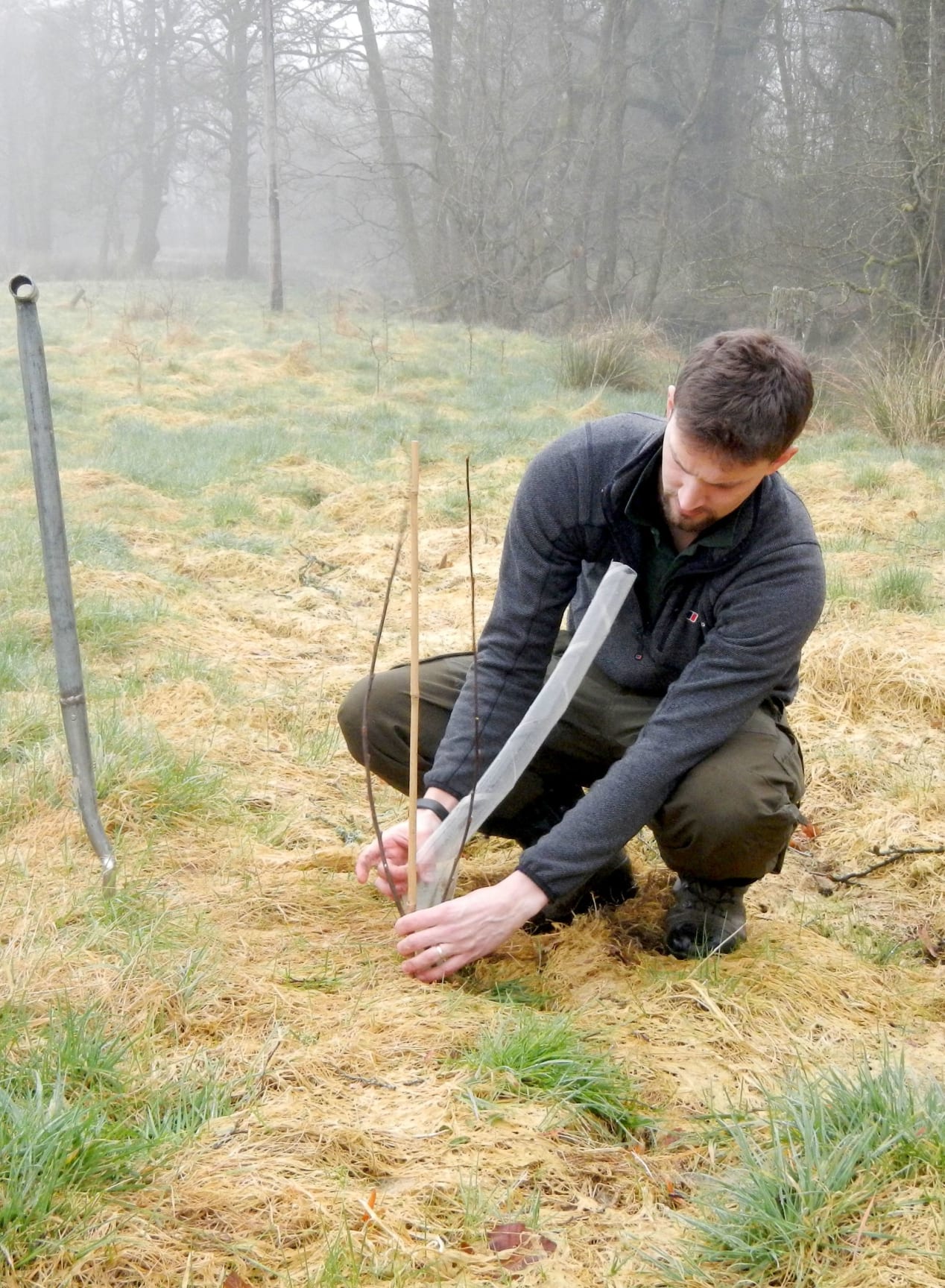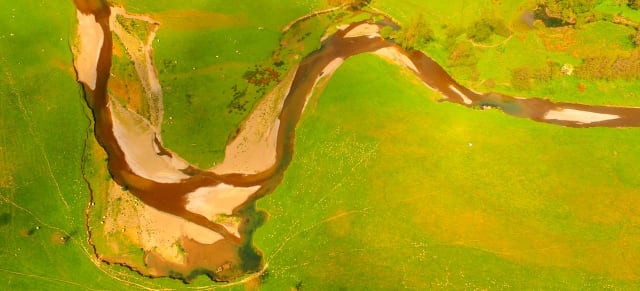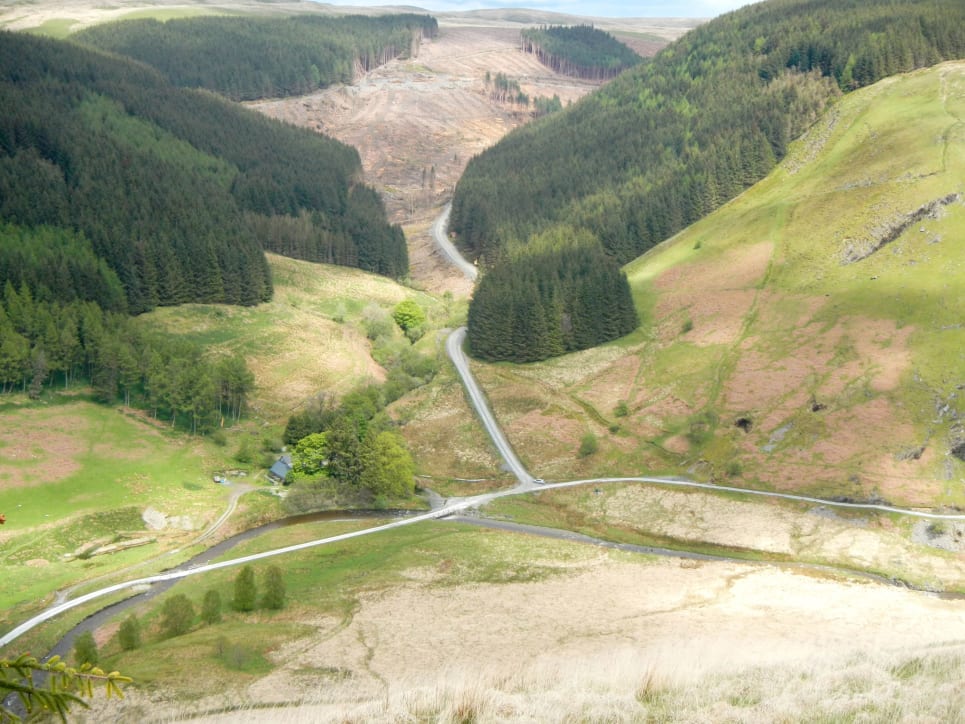Saturday 25th September, 2021
Thousands of trees are to be planted in the Wye catchment in England as part of a national project to create new woodland along rivers and watercourses announced by the Forestry Minister Lord Goldsmith today.
 Planting the right species of tree in the right location or allowing them to naturally colonise along and around rivers can offer enormous benefits for water quality, flood management, biodiversity and climate resilience. These include improving environments for fish by reducing water temperatures and helping rivers adapt to climate change.
Planting the right species of tree in the right location or allowing them to naturally colonise along and around rivers can offer enormous benefits for water quality, flood management, biodiversity and climate resilience. These include improving environments for fish by reducing water temperatures and helping rivers adapt to climate change.
More trees can also provide natural flood management by slowing the flow of water into rivers. They enable rainfall to more easily soak into soils, including those that have become less permeable. The severe floods of the 2019/2020 winter were the cause of the initial and dramatic loss of ranunculus in the Wye. Measures needed to help this vital plant’s recovery include efforts to reduce the severity of winter flooding, not to mention the benefits this also brings to both catchments’ human inhabitants. This is therefore a key action for us in reducing the big floods that are causing so many problems for the rivers.
Trees also help to reduce the amount of agricultural pollution (including phosphorus) getting into rivers by breaking the pathways by which soil and nutrients reach watercourses. They can also help prevent excessive riverbank erosion.
Bankside trees can help prevent excessive erosion which could otherwise leave rivers more susceptible to the effects of climate change.
However, crucial to achieving the best possible results for rivers and the wider environment is ensuring suitable species of tree are planted where they have most effect. In fact, negative environmental impacts are quite possible if inappropriate species and locations are selected. Recent research has suggested that planting trees in areas where the soil is already rich in organic matter, such as peatland, can actually result in a net loss of carbon to the atmosphere.
The drainage of upland peat bogs required for forestry planting has also depleted these areas’ vital capabilities in water storage, contributing to higher flood peaks further downstream and less water flowing into rivers during dry spells. In the case of the upper Wye catchment, commercial forestry has also increased acidity levels in streams, something we have corrected with our yearly liming programme.
It is important to ensure appropriate species of trees are planted in the appropriate location. Not doing so risks creating negative impacts on rivers and the wider environment.
Overall, Defra’s ‘Woodlands for Water’ scheme will enable more than 3,100 hectares of woodland to be created by 31 March 2025 in seven catchment areas located across England. This is an innovative project to be carried out by the ‘Riverscapes’ Partnership, with the Foundation working with the Rivers Trust in the Wye catchment. It will encourage landowners and farmers to plant trees near rivers and watercourses via the new England Woodland Creation Offer grant scheme. This offers grants to landowners and farmers for tree planting, as well as bonus payments for woodlands which contribute to nature recovery, water quality and public access.
This project will help protect our rivers in the longer term, while we also work on more immediate solutions to the current issues facing them.
Among the areas in Herefordshire being prioritised for this project will be sites along the Rivers Dore and Dulas in the Monnow sub catchment and in the Lugg. The objective will be to support the planting of a minimum of 50 hectares in these areas. The Foundation has already completed the research required to enable us to identify areas suitable for floodplain, riparian, and wider catchment planting. This will ensure the extra trees have the maximum benefit for the rivers.
We are very excited to be able to be part of this project to accelerate woodland creation are looking forward to working with landowners and farmers. It will help protect our rivers in the longer term, while we continue to work on more immediate solutions to the current issues affecting them.
Links:
The Foundation is able to offer support on applications, advice on tree species and with planting. Any landowners in the Dore, Dulas or Lugg catchments interested in hearing more are welcome to get in touch by email or by calling us on 01874 711 714.


